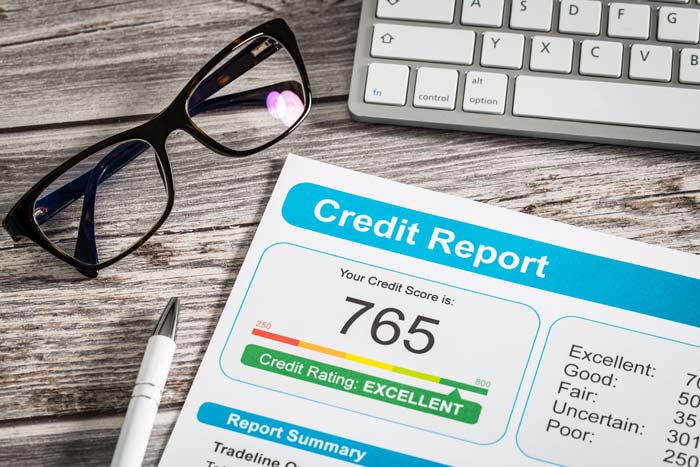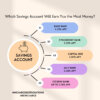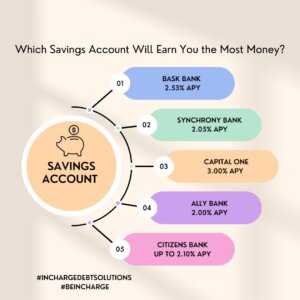A lot of people are familiar with “The 700 Club,” a long-running Christian talk show. Not many realize another 700 Club recently made its debut.
In April of 2017, the average FICO credit score topped 700 for the first time. That means the majority of Americans had good credit scores.
As “The 700 Club” host Pat Robertson would say, “Hallelujah!”
When the average American can get into the FICO 700 Club, it indicates that millions of lost financial souls are learning the virtue of good debt management.
“The scores reflect how people are managing their debt,” said Rod Griffin, the director of public education at Experian, one of the three major credit-reporting agencies.
Credit scores range from 300 to 850, and the “good” range begins at 700. So, if you joined the FICO 700 Club, congratulations. Membership has its privileges.
You are now qualified for lower interest rates on loans, but before you run out and buy that new refrigerator with the computer screen in the door, a word of caution. Taking on too much debt is what helped trigger the Great Recession. Now that we are digging out of it, there are worrisome signs that consumers might be falling back into some bad habits.
Household debt was $12.73 trillion in the first quarter of 2017. That was $50 billion more than the previous record high in 2008 when disaster struck and the economy went in the tank.
Most of that debt is in mortgages, which are considered good debt because houses generally increase in value. But an increasing amount was in not-so-good debt, namely credit cards.
Credit card debt hit $1.02 trillion in May of 2017, according to the Federal Reserve Bank of St. Louis. That was the highest since July of 2008. Credit card debt now joins student loans and auto loans in the Trillion Dollar Debt Club and that’s not a good thing.
Of the three, credit card debt is the worst because of high interest rates. And they’re not getting any lower. According to CreditCards.com, the average rate of 100 popular “low interest” credit cards rose from 12.09% to 12.83% in the first six months of 2017. That is an astounding 16% leap up from the year before.
The average for cash-back reward cards went from 15.43% to 16.17%. And for higher-risk consumers with poor credit scores, the rate rose from 22.95% to 23.4%.
As Rev. Robertson might say, credit cards are sneaky as the Devil. Those seemingly insignificant percentages can add up to thousands of dollars and the news isn’t getting any better.
Interest rates have remained fairly stable because they are tied to the Federal Funds Rate. That’s a key interest rate controlled by the Federal Reserve. When the Great Recession hit, the Fed lowered the rate to near zero in hopes it would stimulate the economy. It stayed there for years, but the Fed started nudging it higher late in 2015.
The rate is still low by historical standards at 1.25%, but the hikes since 2015 added $4.3 billion in additional interest charges that consumers are paying for in 2017.
“It reflects the progress the economy has made,” Fed chair Janet Yellen said when she announced the latest hike in June 2017.
It’s the irony of the economy. Unemployment is low and growth has been slow but steady. Consumers are managing their debts better than ever, at least if you go by the average FICO score.
And all that good news could mean bad news for anyone with a credit card.
The best approach is for consumers to keep doing the things that got them into the FICO 700 Club to begin with. Late payments (those 90 days or more past due) dropped from 19.4% of the population in Oct. 2013 to 16.5% in April 2017.
That’s important because payment history makes up 35% of a person’s FICO credit score. Consumers have also become much more aware of credit scores in general thanks to the Internet and advertisers.
The whole process used to be shrouded in mystery. But now many lenders and financial service companies give clients free access to their credit scores, and a few computer clicks will get them there.
The Federal Trade Commission also requires the big three credit reporting companies – Experian, Equifax and TransUnion – to provide consumers with a free copy of their credit report once a year if requested. To get one visit annualcreditreport.com or call 1-877-322-8228.
You might find you’re a member of the 700 Club and didn’t even know it. But again, the good news should be tempered with a reality check.
Credit utilization – how much debt you put on your card – accounts for 30% of your FICO score. That’s notable because credit card debt has topped that $1 trillion barrier.
The overall takeaway is that people are managing their debt better, but there’s still plenty of it out there. And with interest rates creeping up, bad financial behavior could be costlier than ever.
One way to lessen the impact is through debt consolidation. Millions of Americans have turned to nonprofit organizations for such help. Credit counselors work with credit card companies and other lenders to lower their interest rates. Then those bills are combined into one monthly payment, which is lower than what the client was paying when all those bills were separate.
The counselors also set up budgets and provide advice for clients. If you’re not already in the 700 Club, debt management has proven a good way to join.
And with all due respect to the first “700 Club,” getting into the second one can feel like heaven on earth.

5 MINUTE READ
Home » OneVision Blog »
Sources:
- Dickler, J. (2017, July 11). Credit card users rack up over $1 trillion in debt. Retrieved from http://www.cnbc.com/2017/07/11/credit-card-users-rack-up-over-1-trillion-in-debt.html
- (2017, July 12). Fed Chair Janet Yellen: US Economy is ‘Healthy Enough’ for Gradual Interest Rate Hikes. Retrieved from http://fortune.com/2017/07/12/federal-reserve-janet-yellen-rate-increases/
- NA, ND. US Average FICO Score Hits 700: A Milestone for Consumers. Retrieved from http://www.fico.com/en/blogs/risk-compliance/us-average-fico-score-hits-700-a-milestone-for-consumers/
















